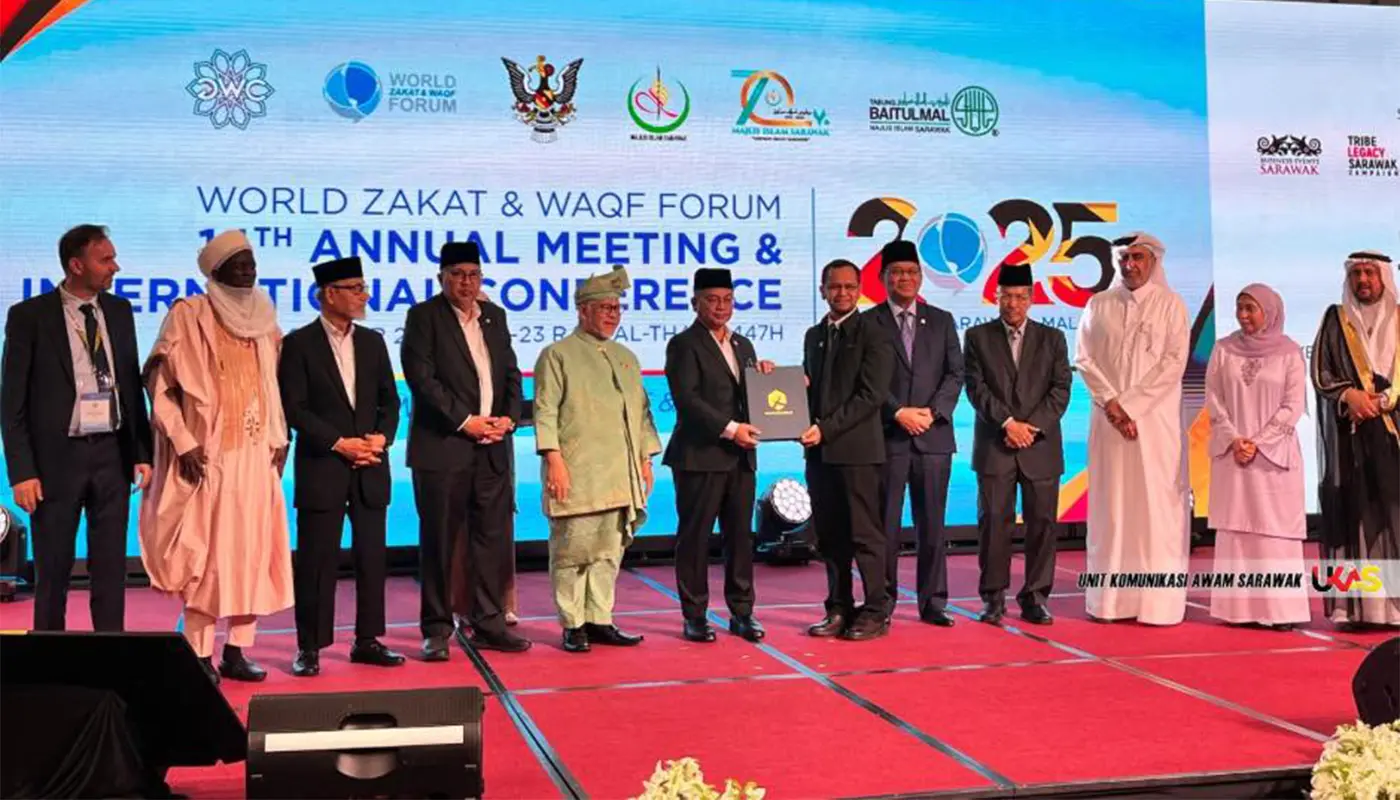KUCHING – The Madani government has reaffirmed its commitment to re-embed Islamic values in public financial management, seeking a balance of values, innovation and unity.
This was emphasised by Prime Minister Dato’ Seri Anwar Ibrahim during the closing of the World Zakat & Waqf Forum (WZWF) at the Hikmah Exchange and Event Centre (HEEC), here, on Wednesday.
Anwar argued that Malaysia should assert its capacity to formulate its own social financial model, governance structure and development path, rooted in Islamic worldviews yet responsive to contemporary demands. He said:
“If Muslims are divided politically, then let us unite economically, socially and spiritually through the institutions of Zakat and Waqf.
The Madani Vision of Malaysia emphasises … restoring the Islamic worldview in public life not as a relic of the past, but as a framework for the future.”
He urged the return of adab (manners), ethics, respect and dignity as timeless foundations for governance and international relations. He added that zakat and waqf should not be seen merely as financial tools, but as civilisation strategies and foundational pillars that uphold society.
The prime minister described the WZWF as a vital bridge connecting spiritual and material realms, values and systems, and aspirations and responsibilities.
The speech was delivered by Senator Dato’ Setia Dr Mohd Na’im Mokhtar, Minister in the Prime Minister’s Department (Religious Affairs).
Also in attendance were Datuk Dr Abdul Rahman Junaidi (Deputy Minister in the Sarawak Premier’s Department), Datuk Misnu Taha (President of the Sarawak Islamic Council), Datuk Dr Mohd Ghazali Md Noor (Secretary-General of WZWF), Datu Abang Mohamad Shibli Abang Mohamad Nailie (General Manager, Sarawak Baitulmal Fund), and other dignitaries.
The WZWF 2025, held over 13–15 October in Kuching, produced 10 key resolutions to enhance the global role of zakat and waqf, including stronger digital governance, greater transparency, humanitarian focus (notably for Gaza), sustainable development in health, education and environmental sectors, and fostering cross-sector collaboration.
Observers note that in recent public statements, Anwar has emphasised that Islamic financial instruments need robust governance and must address issues like poverty and inequality, rather than being tokenistic or merely symbolic.
By situating Sarawak as a host and focal point for the WZWF, the state has also signalled its ambition to be a regional hub for Islamic social finance innovation.



